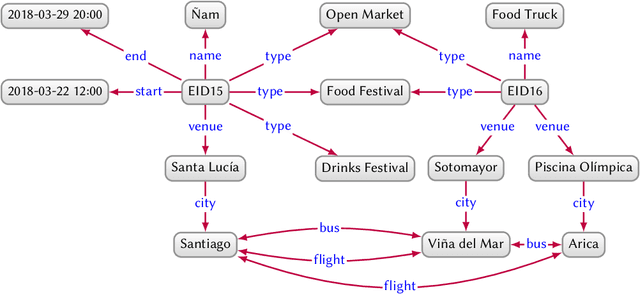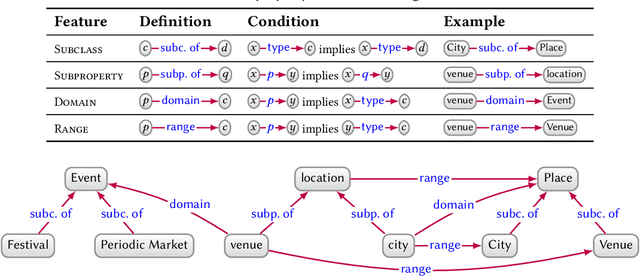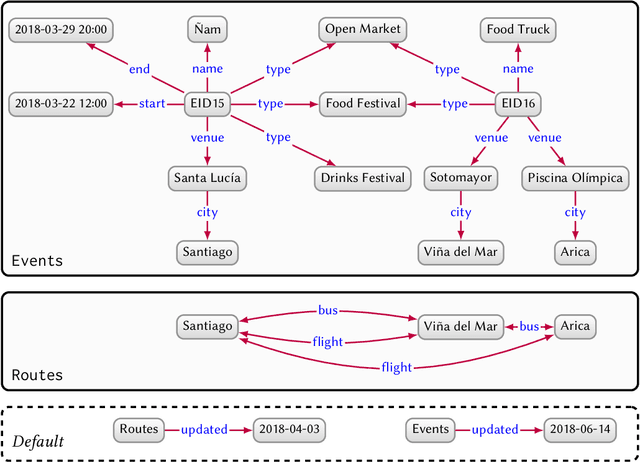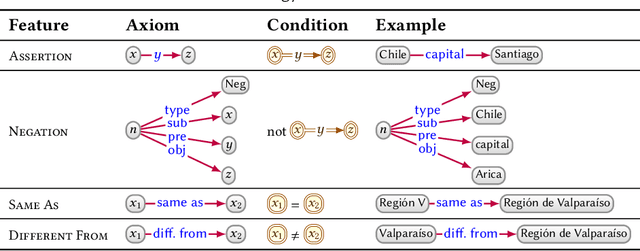Eva Blomqvist
Assessing the Capability of Large Language Models for Domain-Specific Ontology Generation
Apr 24, 2025Abstract:Large Language Models (LLMs) have shown significant potential for ontology engineering. However, it is still unclear to what extent they are applicable to the task of domain-specific ontology generation. In this study, we explore the application of LLMs for automated ontology generation and evaluate their performance across different domains. Specifically, we investigate the generalizability of two state-of-the-art LLMs, DeepSeek and o1-preview, both equipped with reasoning capabilities, by generating ontologies from a set of competency questions (CQs) and related user stories. Our experimental setup comprises six distinct domains carried out in existing ontology engineering projects and a total of 95 curated CQs designed to test the models' reasoning for ontology engineering. Our findings show that with both LLMs, the performance of the experiments is remarkably consistent across all domains, indicating that these methods are capable of generalizing ontology generation tasks irrespective of the domain. These results highlight the potential of LLM-based approaches in achieving scalable and domain-agnostic ontology construction and lay the groundwork for further research into enhancing automated reasoning and knowledge representation techniques.
Ontology Generation using Large Language Models
Mar 07, 2025Abstract:The ontology engineering process is complex, time-consuming, and error-prone, even for experienced ontology engineers. In this work, we investigate the potential of Large Language Models (LLMs) to provide effective OWL ontology drafts directly from ontological requirements described using user stories and competency questions. Our main contribution is the presentation and evaluation of two new prompting techniques for automated ontology development: Memoryless CQbyCQ and Ontogenia. We also emphasize the importance of three structural criteria for ontology assessment, alongside expert qualitative evaluation, highlighting the need for a multi-dimensional evaluation in order to capture the quality and usability of the generated ontologies. Our experiments, conducted on a benchmark dataset of ten ontologies with 100 distinct CQs and 29 different user stories, compare the performance of three LLMs using the two prompting techniques. The results demonstrate improvements over the current state-of-the-art in LLM-supported ontology engineering. More specifically, the model OpenAI o1-preview with Ontogenia produces ontologies of sufficient quality to meet the requirements of ontology engineers, significantly outperforming novice ontology engineers in modelling ability. However, we still note some common mistakes and variability of result quality, which is important to take into account when using LLMs for ontology authoring support. We discuss these limitations and propose directions for future research.
Knowledge Graphs
Mar 28, 2020



Abstract:In this paper we provide a comprehensive introduction to knowledge graphs, which have recently garnered significant attention from both industry and academia in scenarios that require exploiting diverse, dynamic, large-scale collections of data. After a general introduction, we motivate and contrast various graph-based data models and query languages that are used for knowledge graphs. We discuss the roles of schema, identity, and context in knowledge graphs. We explain how knowledge can be represented and extracted using a combination of deductive and inductive techniques. We summarise methods for the creation, enrichment, quality assessment, refinement, and publication of knowledge graphs. We provide an overview of prominent open knowledge graphs and enterprise knowledge graphs, their applications, and how they use the aforementioned techniques. We conclude with high-level future research directions for knowledge graphs.
 Add to Chrome
Add to Chrome Add to Firefox
Add to Firefox Add to Edge
Add to Edge